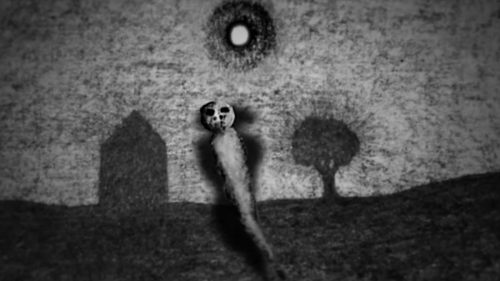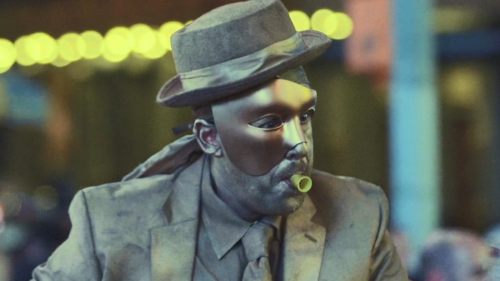The Short Of It: The Oscar-Nominated Live Action Shorts
The Live Action Shorts category is something of a red-headed stepchild in terms of Oscar categories, even when compared to other Shorts categories. Lacking the built-in child audience inherent to many animated shorts or the dedicated following that documentaries receive, live action shorts are primarily a testing ground for tomorrow's feature talent, with award recognition often leading to bigger, feature projects for the parties recognized. So here are some films that might show us the auteurs to look out for.

DeKalb Elementary (dir. Reed Van Dyk)
Live action shorts are often a pedestal on which to highlight dramatized issues of the day, and DeKalb Elementary is exactly that. Taking place in a single elementary school office, the short shows a disturbed young man holding the office's receptionist hostage with an assault rifle as the police arrive outside to negotiate. What's striking is that this isn't a film focused on high tension, but rather on the empathetic relationship between the hostage and the young terrorist. She talks him down to a point where he wants to give himself up, and though she knows her life and the lives of the students in the building are all in danger, she's willing to step up and see her attacker as a confused boy who is lashing out against an easy target. This soft spoken exercise in empathy is intriguing in its topicality and has a real chance of walking away with the gold.

The Eleven O'Clock (dir. Derin Seale and Josh Lawson)
There always seems to be one short nomination that plays to the more comically inclined of Academy voters, and this year's entry is The Eleven O'Clock. This one shows a psychiatrist who has to face the quandary of a patient who also believes himself to be a psychiatrist. The big twist of the ending is pretty obvious from the get-go, but the pleasure of the experience comes from watching the two men try to treat one another as they consistently confuse who is the patient in the relationship. It's goofy and slight, but it shows a skill in comic timing from its directorial duo that might develop into something more substantial down the road.

My Nephew Emmett (dir. Kevin Wilson Jr.)
I hate to say it, but I'm not really feeling this one. My Nephew Emmett relives the abduction of Emmett Till from his home as he is about to be lynched, as perceived by his uncle Mose Wright. And that's about it. Yes, the scene in question is harrowing and the bitter finality of Wright failing to protect his nephew is appropriately somber and chilling, but there doesn't seem to be much purpose to revisit this event in such a limited context. L.B. Williams delivers an understated performance as Mose Wright, but it's perhaps too understated for the film to actually have anything new to say. This one isn't so much a dud as it is an example of underwhelming missed potential.

The Silent Child (dir. Chris Overton and Rachel Senton)
This is another current issue short, and it's honestly a pretty important one about a topic that doesn't get a lot of publicity. The film shows a social worker who specializes in sign language and speech therapy enter the employ of a family with a four-year-old deaf daughter who has yet to learn to communicate. However, a struggle emerges as the family matriarch seems unwilling to learn sign language herself and instead wants her daughter to achieve "normalcy" through lip reading and speech therapy, which is unrealistic and damaging to the development of a deaf child. Made with the purpose of highlighting the lack of institutional supports in place for hearing-impaired children, The Silent Child is an effectively tragic film that will hopefully make those in positions to provide educational resources more empathetic to the needs of the deaf.
_1200_675_81_s.jpg)
Watu Wote: All Of Us (dir. Katja Benrath and Tobias Rosen)
Given the current political climate of the United States, this feels like a sure winner in this category based solely on subject matter. In December 2015, a bus driving through Kenya was attacked by Al-Shabaab in the name of Islam. Told from the perspective of a Christian woman, Watu Wote: All Of Us shows how on that fateful day the Muslims on that bus hid the Christians among them from the terrorists who wished to make an example of them. The confrontation is a very pointed distinction between the peaceful adherents of Islam and the terroristic entities who proclaim Islam as a shield for their crimes, and while the messaging is blunt, it's effective given the limited runtime and makes for a tense bit of theater.
Be sure to check out our article about the Oscar-nominated animated shorts, and be on the lookout for the next installment of The Short Of It where we talk about the documentaries!



